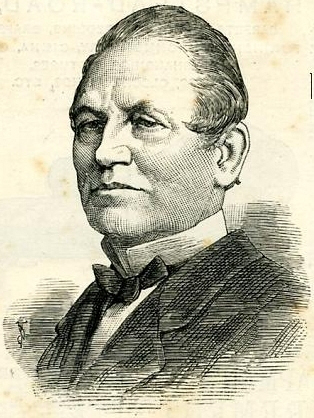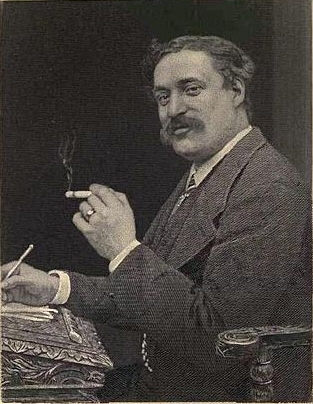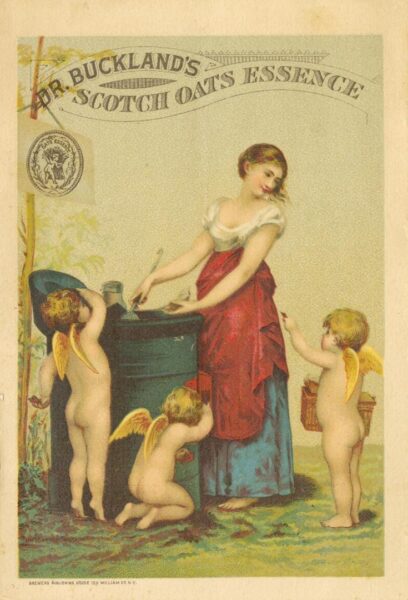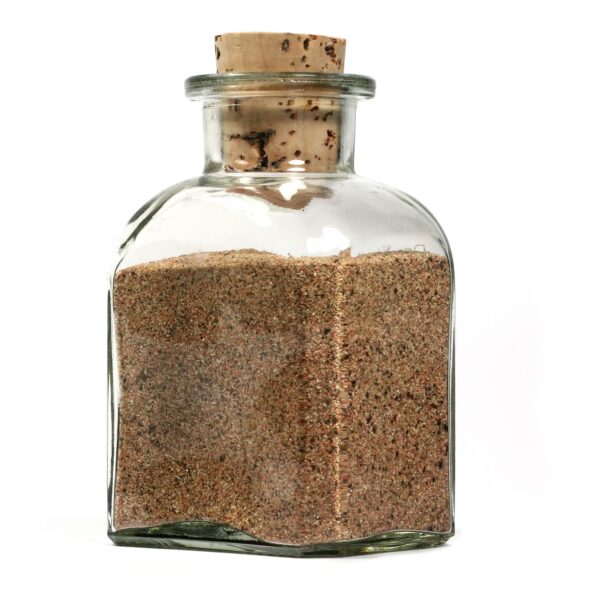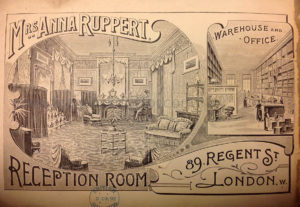.
I’m pleased to welcome guest blogger Leslie Katz, who has investigated whether Charles Dickens was approached to promote the famous Holloway’s Pills in one of his novels.
.
For many years during the nineteenth century, the self-styled “Professor”, Thomas Holloway (1800-1883) (shown below), was the most widely known household name in Britain. He was the manufacturer of Holloway’s Pills and Ointment, quack medicines that he advertised relentlessly and sold in great quantities, those sales contributing to his becoming a very wealthy man. (He also made a great deal of money by skilful investments.) As to his fame, it was said of him that millions who had never heard of Napoleon had, because of his advertising, heard of Holloway.
When he died, Holloway left an estate of about £600K and a considerable amount of land, but his estate was reduced by the fact that, in the years before his death, he’d also spent about £1M for charitable purposes (perhaps in penance for having sold so much quack medicine?).
His death was followed by the publication of a number of anecdotes about him.
One anecdote, involving Charles Dickens as well as Holloway, was published in The World by Dickens’s friend, Edmund Yates (shown below). Yates owned and edited The World, which was a weekly “society paper”.
The anecdote was as follows:
He was a shrewd amusing man, this … “Professor,” and was very daring. He once enclosed a cheque for a thousand pounds in a letter to Charles Dickens, which he placed at Dickens’s disposal, on condition that one line of complimentary reference to Holloway’s cures should appear in the book which Dickens was then publishing in monthly numbers. The bearer waited for an answer. “What did you do?” I asked Dickens. “Do!” he cried; “I put the cheque back into the letter and sent it down to the messenger, saying that was all the answer I had to send!”
To use modern terminology, Yates was alleging that Holloway had proposed a product placement in one of Dickens’s books, but that Dickens had angrily rejected the proposal.
Was Yates telling the truth when he published that anecdote?
Certainly, his track record doesn’t inspire confidence in his desire to tell the truth to the best of his ability.
For instance, at about the time he was publishing that anecdote, he was being prosecuted for defamatory libel for another story that he’d published in The World. At his trial, he pleaded guilty, but sought to persuade the court that he deserved a light sentence. His argument wasn’t based on a claim that the story that he’d published, an allegation of marital infidelity by someone recognisable by readers as the Earl of Lonsdale, had been true or on a claim that he’d done his best to establish its truth before publishing it. Instead, it was based on a claim that he hadn’t known to whom the allegation applied and that he hadn’t taken any steps to find out to whom it could be thought to apply. Naturally, a claim like that got a scathing response, the court saying that it made his position worse, rather than better, and he was sentenced to four months’ imprisonment, of which he served seven weeks before being released due to illness. (He didn’t have to fear a loss of income while in prison, incidentally, since he’d married into the fabulously wealthy Wilkinson family, makers of swords and, later, razor blades.)
Much of Yates’s professional career consisted of incidents like the one I’ve just described, leading one modern-day commentator to sum him up as follows; “He was a shady customer, with his tricks and schemes and smoking-room confidences; ultimately the thought of him rather turns one’s stomach.”
I believe that Yates wasn’t telling the truth when he published his Holloway-Dickens anecdote. I don’t rely particularly in reaching that conclusion on Yates’s general character, but rather on an examination both of: other writings by him mentioning either Holloway or Dickens; and writings by Dickens mentioning Holloway.
Space doesn’t permit me even to summarise that examination here, but I’ve set out my position in my paper, “Dickens and Product Placement: Did He Refuse an Offer from ‘Professor’ Holloway?” I invite you to download that paper from here and to read it.
.
Leslie Katz is a retired judge who developed an interest in the intersection between the literature and the consumer products of the nineteenth century. This has led him to write about such authors as Byron, Dickens and Conan Doyle and about such products as Rowland’s Macassar Oil, Warren’s Blacking, Holloway’s Pills and Ointment and the ready-made clothing of Hyam & Co Limited. All his papers are available to download from the Social Science Research Network.
